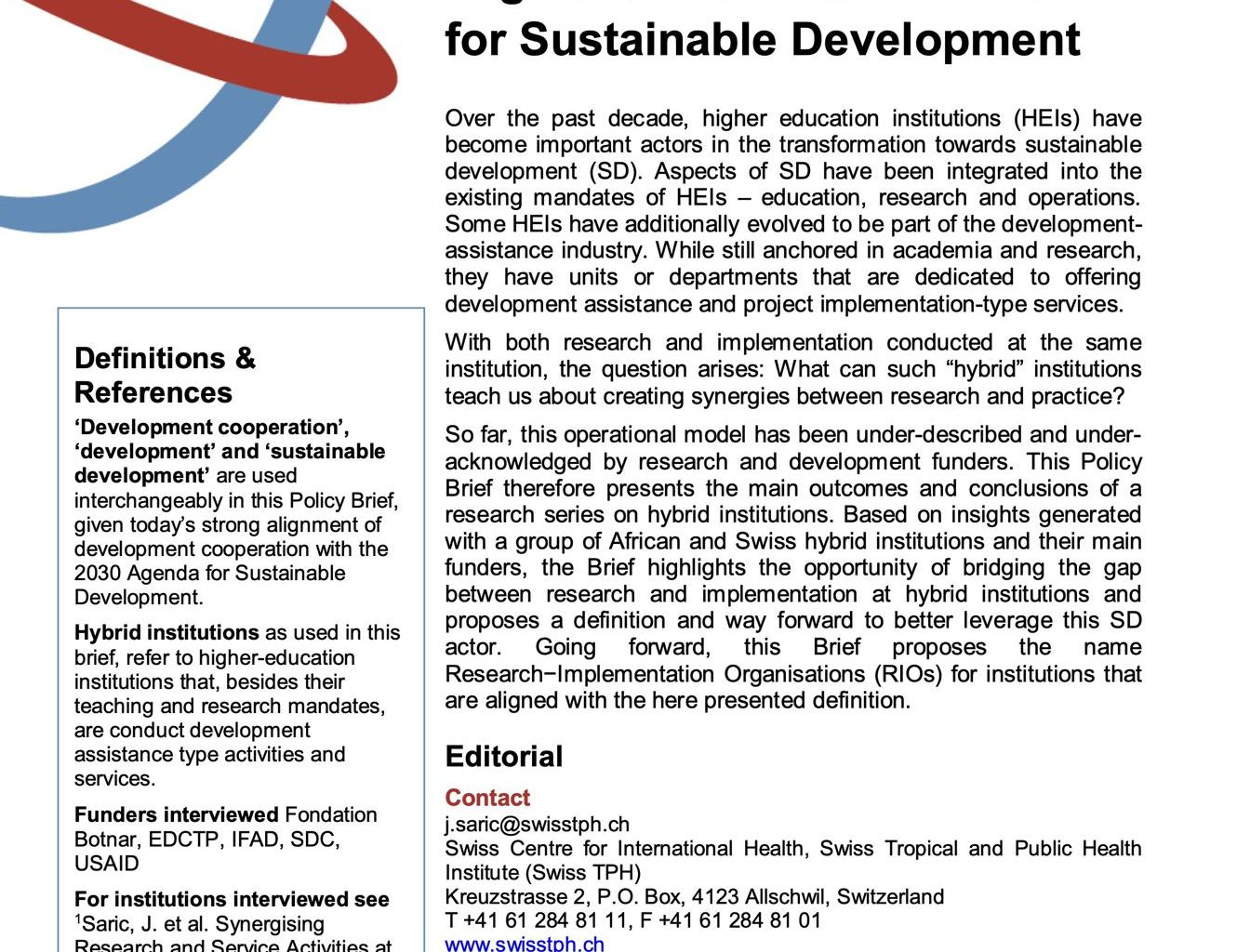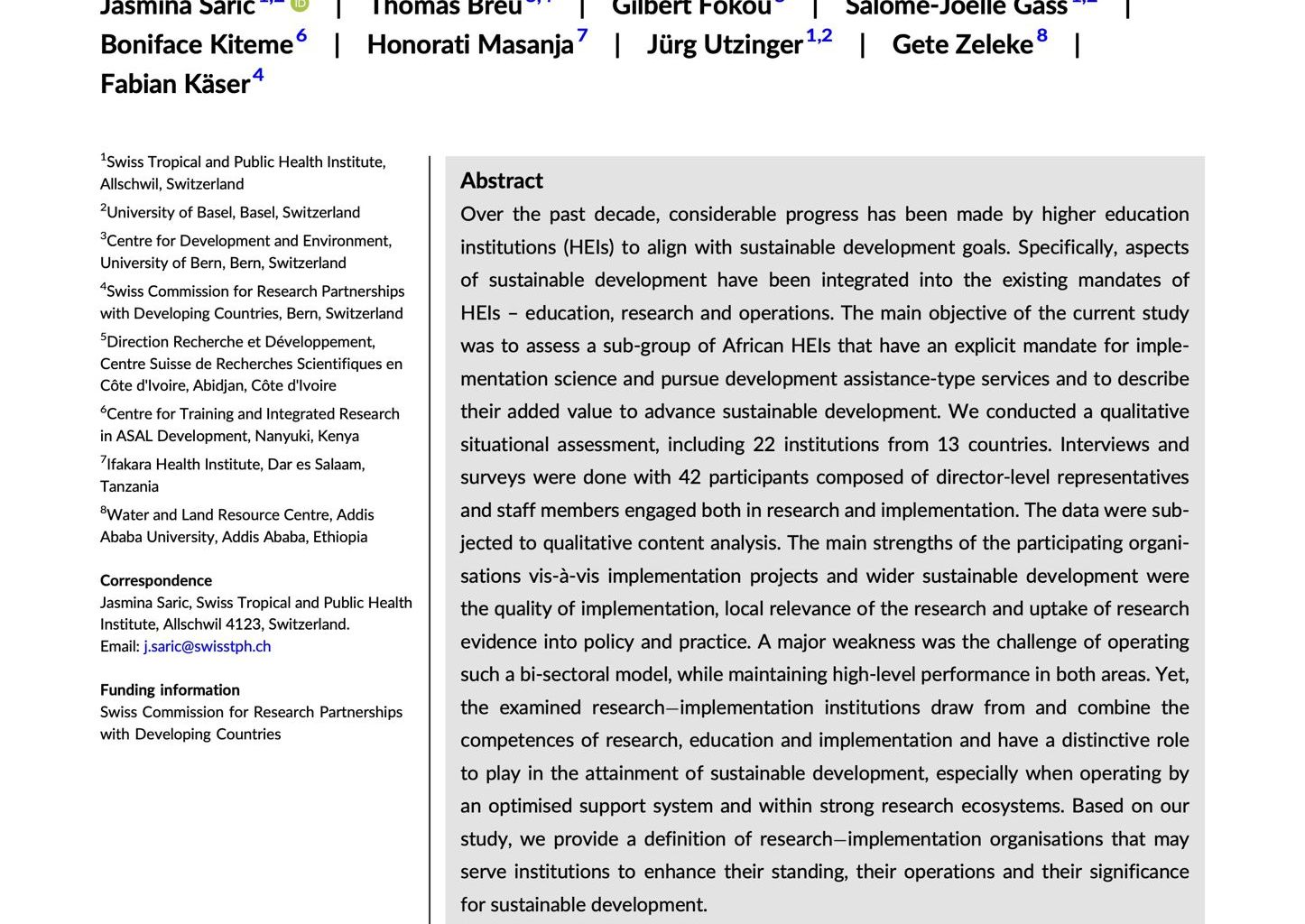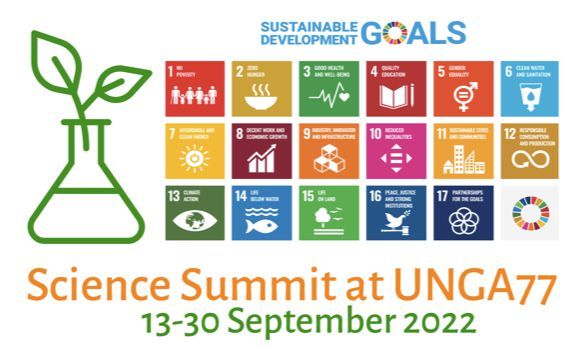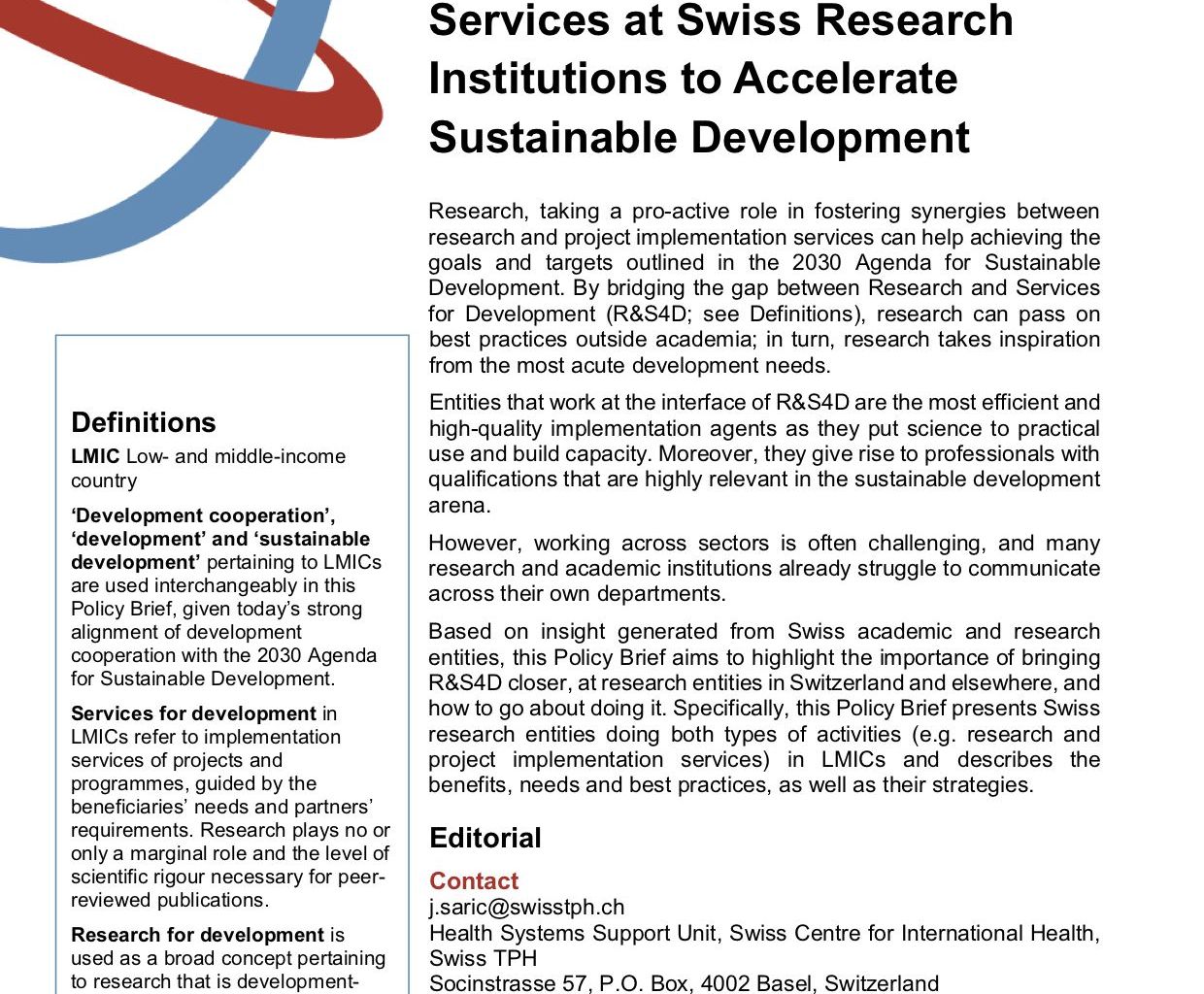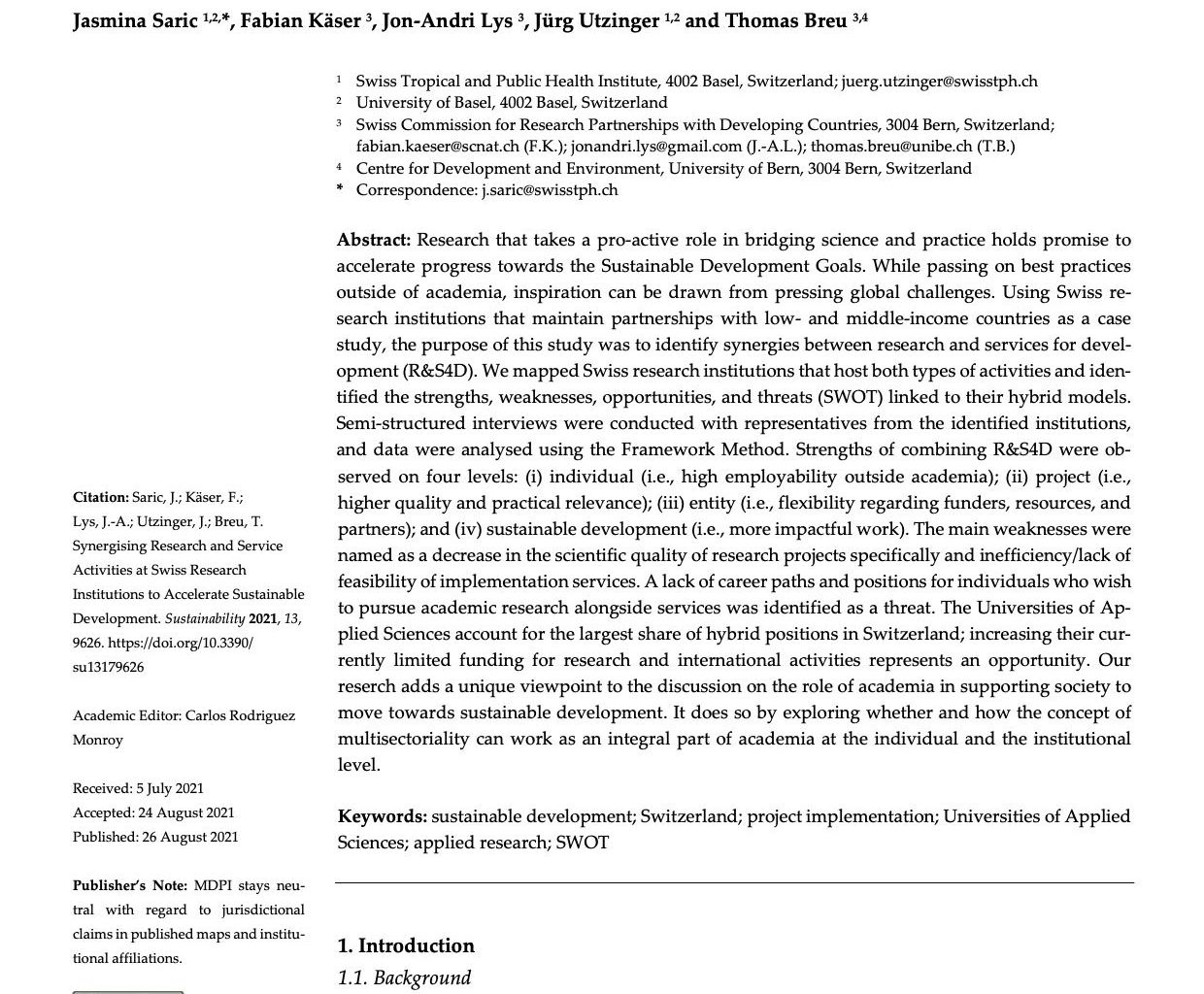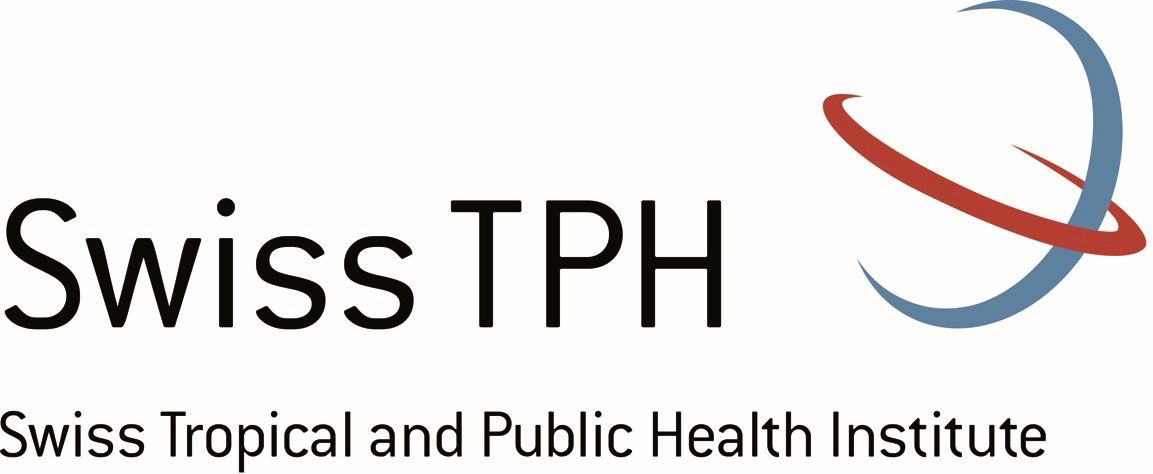Research−implementation organisations and their role for sustainable development
Over the past decade, considerable progress has been made by higher education institutions (HEIs) to align with sustainable development goals. Specifically, aspects of sustainable development have been integrated into the… existing mandates of HEIs – education, research and operations. The main objective of the current study was to assess a sub-group of African HEIs that have an explicit mandate for imple- mentation science and pursue development assistance-type services and to describe their added value to advance sustainable development. We conducted a qualitative situational assessment, including 22 institutions from 13 countries. Interviews and surveys were done with 42 participants composed of director-level representatives and staff members engaged both in research and implementation. The data were sub- jected to qualitative content analysis. The main strengths of the participating organi- sations vis-à-vis implementation projects and wider sustainable development were the quality of implementation, local relevance of the research and uptake of research evidence into policy and practice. A major weakness was the challenge of operating such a bi-sectoral model, while maintaining high-level performance in both areas. Yet, the examined research-implementation institutions draw from and combine the competences of research, education and implementation and have a distinctive role to play in the attainment of sustainable development, especially when operating by an optimised support system and within strong research ecosystems. Based on our study, we provide a definition of research-implementation organisations that may serve institutions to enhance their standing, their operations and their significance for sustainable development.

